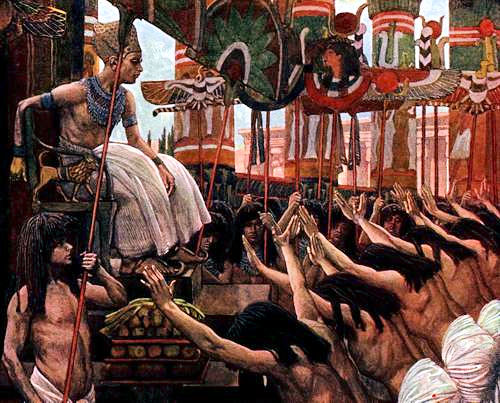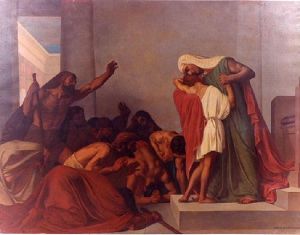In the beginning there was a timeless darkness, a primordial night shrouding an ocean of chaos. Apart from this chaos, there is a presence; holy, divine, a Spirit hovering over the waters. Ancient sages compared this Spirit to a dove hovering over her young, and as the Spirit hovered over the waters, suddenly Creation was called into life.
This is how the Hebrew Scriptures begin, with the story of God creating the heavens, the earth and everything in them. It’s a familiar story, but it immediately establishes a tension with other stories from neighbouring lands. Many creation stories begin with the same primordial chaos and a divine culture hero warring monsters to bring the world into being. Genesis does away with this conflict; there is the chaos, and there is God, and he doesn’t need to go to war in order to create, he just speaks the words and the world appears. He is supreme over the chaos.
Reconcile that with science however you want, that’s not the point of this post. Instead, think about the chaos of the world, the darkness through which we stumble; prejudice, hatred, war, Aleppo, Charleston, slaughters at nightclubs. We’re surrounded by chaos, and often it seems like the chaos is winning. Heck, I feel like that right now. But those are the times we need to stop, to take a step back, to look for the Spirit hovering over the chaos and to see where the dove may lead us.
Because even when things are overwhelming, the hope of new life and new creation is still there, the promise of a restart, a rest a reboot. A few chapters after the creation story and the world is flooded, Noah and his family stuck on the Ark and praying for dry land. They release a dove, which flies over the water until it finds an olive branch, a sign that the world can start again, a sign that new life still emerges from the mud and the waves, a rainbow asserting that the tempest doesn’t get the last word.
Because amid the deluge and the whirlpools, the darkness and the rolling thunder, God is still there. Even when the monsters rise up from the sea and threaten to carry us away, God remains. He doesn’t fight the monsters, he commands them, like a pet. He goes fishing for Leviathans, and when Jonah is consumed by the waves, he’s swallowed a God-sanctioned behemoth who carries him to safety. The monsters may be terrifying, but they’re not God and eventually they come to heel.
(The name Jonah, incidentally, means ‘dove’.)
And when Jesus is baptised by John, the Son of God plunges beneath the waters, and as he emerges the Spirit descends, a dove once again. Because this isn’t just a ritual, it’s a rebirth of hope, the offer of resurrection, the chaos put on notice before Jesus walks the land, driving out demons and stilling the storms. He’ll go to the Cross, yes, the monsters of Empire and Dogma dragging him to a lynching, but even then the darkness does not win; it breaks out of the tomb three days later, creation begun anew.
Sometimes we need to just cling on to that hope, even it’s by our fingertips, even if the lifeboat’s taking on water.
Much of this post was inspired by the work of Pastor Jonathan Martin, but also a sense that the darkness and chaos are creeping ever closer, leaking through the edges of the world, threads beginning to unravel. That’s how it feels, at least, and I guess that it’s easy for those emotions to take hold. Maybe there’s always chaos before a recreation, maybe we plummet into the abyss before we’re reborn. Maybe the monsters need to scratch at our door before we learn to be brave. I don’t know.
But while the sun sets and the waters roar, hope still hovers; the light shines in the darkness because the darkness cannot overcome it, and the Spirit flies over the deep in the form of a dove.





